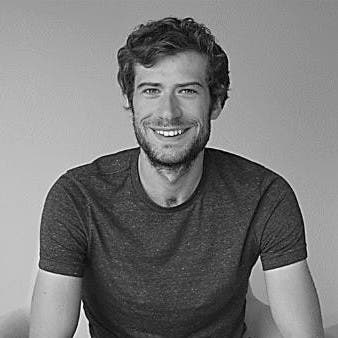What's the most inspiring thing you've seen?
I think what inspired me the most today was the key importance of inclusivity as a common theme in most of the recent work I've seen, and not only in the Good or in the Lions for Change sections but really across all categories. Though the work may vary, they all deal with the multiple meanings that inclusivity can have, such as gender equality, LGBT rights, disabled people inclusion, ethnic diversity…
I think it underlines the desire and the necessity for brands nowadays to not just talk about their social commitment in comms, in packagings but to really act on it - I mean through concrete and measurable actions that will have a real impact on society.
What surprised you?
From what I saw today, I would definitively say the fact that brands are not "just" brands anymore. And when I say that I'm not just referring to brand CSR commitments but I'm really thinking about how brands have become a public institution that has the power and the responsibility to make people's lives better and to make change happen!
Of course, that is not new, we've been talking about that for years. However, I think this has been strongly accelerated by the Covid-19 crisis: consumers now want brands to help heal the world and especially during tough times like now. Solve don't sell!
During one of the presentations, a certain figure shocked me: 58% of consumers believed that Covid-19 could not be solved without the help of brands. That's huge!
What this tells us is that:
- For those who could still doubt it, brands are now definitely legitimate to deal with public and social issues at a global scale
- But beyond that, it tells you that brands MUST take their responsibilities within the public space, that they have to collaborate with states and political authorities to solve social issues. The real takeaway here is that brands are not only legitimate to do so - of course they are - but that consumers expect them to do so.
Which I think, is a big shift in our industry today.
What work really impressed you?
I really liked the MasterCard case where they created the first credit card that allows trans people to use their chosen name. It's so simple yet so effective, and it delivers such a strong message at the same time. Truly brilliant.
I also really enjoyed the DOVE case called "It's on US" because I think it perfectly illustrates my point about brands acting concretely for inclusivity, and why it should start with the communication industry itself, because we all know that brand stories and advertising have a great influence on society.
They basically hacked the advertising industry—from the inside. They infiltrated international castings for other brands’ campaigns with inclusive beauty models, and basically pledged that if a brand chose one of their models, they would cover the fees.
I'm not surprised by this idea, because Dove has always been celebrating all kinds of beauty in its communication. But unfortunately, too many other brands did not make the same effort.
It’s great example of how a brand can influence other brands for good.
What have you seen that will have the biggest implications for our industry over the next 12 months?
There was a truly inspiring conference about “intelligent creative” in the afternoon by VidMob.
We all know that the industry must now adjust to less and less third-party data, with the cookieless revolution especially from Google, which makes targeting more & more difficult.
So, the question is how can we move away from traditional digital targeting : from the traditional right content, to the right people, at the right moment ? And how can get even smarter about what works and makes ads more performing? How can we make the creative itself more engaging, more effective?
That’s where creative data can really shape the close future of digital creatives and targeting.
Basically, it reconciles technology, data, and creatives. It truly makes creatives measurable, it uses data technology in order to optimize creative effectiveness: for example, if I include a smile in the creative it will increase the click through rate by x%, if I change the background color, I will improve views by x%
Of course, we need to be careful, I really don’t think data and technology should replace creativity; we do not want an industry where every creative is automatically generated by artificial intelligence. Otherwise, this is not creativity anymore but just… execution.
You know it’s a bit like the difference between art and craftmanship: art requires technique, but technique does not necessarily lead to art. It’s because art is not just about the technique, it’s about the idea, about the story you want to tell.
I think it’s the same for ad creativity in advertising: ad creatives require technique, data, and technology to perform better. But that is not enough. At the end of the day, it will always need an idea, a message, a story even for simple digital banners, otherwise it cannot be efficient regardless the amount of data and technology optimization you put into it.
Use data to unlock, to enhance creativity, yes, but not to replace it.

